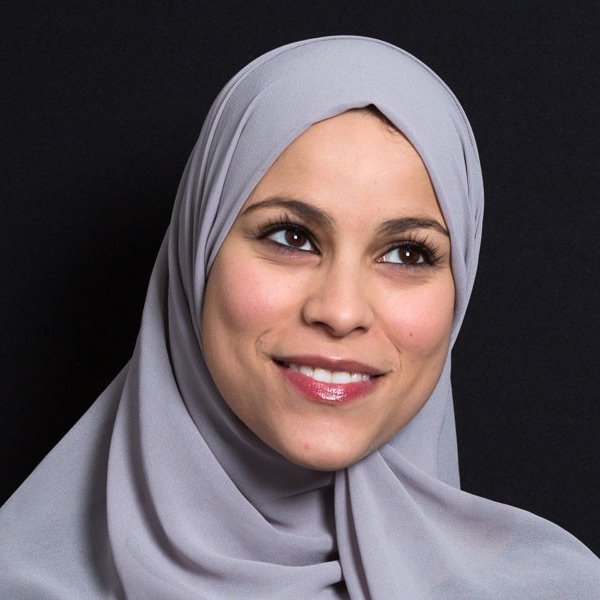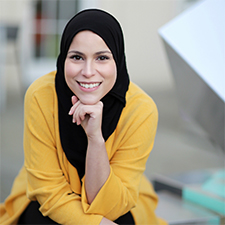 Dr. Alaa Murabit is a medical doctor, a UN High-Level Commissioner on Health Employment & Economic Growth, one of 17 Global Sustainable Development Goals Advocates, MIT Media Lab Director’s Fellow, and one of the newest Influencers for the Deliver for Good Campaign. On top of all of that she is also a fierce advocate for women’s participation in peace processes and conflict mediation.
Dr. Alaa Murabit is a medical doctor, a UN High-Level Commissioner on Health Employment & Economic Growth, one of 17 Global Sustainable Development Goals Advocates, MIT Media Lab Director’s Fellow, and one of the newest Influencers for the Deliver for Good Campaign. On top of all of that she is also a fierce advocate for women’s participation in peace processes and conflict mediation.
Women worldwide continue to be marginalized from the political sphere due to restrictive laws, cultural practices, and myriad other reasons. In the interview below President/CEO of Women Deliver Katja Iversen and Alaa Murabit explore the importance of gender equality, and the challenges girls and women face in the political and decision-making arena.
Katja: We are so excited to have you as the newest Influencer for the Deliver for Good Campaign. You are a medical doctor, a TED speaker, a global advocate, a mover and a shaker for girls and women. Why have you devoted your life to work for gender equality and women’s political participation?
Alaa: My work has, understandably, been significantly shaped by my upbringing in Canada and Libya. As the middle child of eleven, I learned the importance of diplomacy, alliances and making my voice heard during negotiations at home. My parents treated all of us, my brothers and sisters, equally. It was as I grew older and entered more professional spaces and during medical school that I began to realize I was no longer afforded the same level of respect as my male counterparts. My friends, colleagues, professors and others questioned my aspirations while religious leaders cited religion as backing that women should be relegated to inferior roles to men, especially in the public sphere. This prompted me to do research about the role of women in Islam. I found that women were strong leaders who made significant contributions to their society politically, economically and militarily. It wasn’t my faith that was restrictive towards women; it was socially constructed cultural notions, veiled as religious dictate as determined by male religious actors with underlying political, social and economic benefits to themselves.
This issue transcended the personal and took on a bigger significance for me in 2011. During the Libyan revolution, women were encouraged to assume prominent leadership roles. As soon as the situation stabilized, however, women were encouraged to revert to the roles they had before the revolution. I found this troubling, and I knew I had to do something to change it. My organization, Voice of Libyan Women, led the largest campaign in the country to combat the patronizing narratives about women with messages of empowerment. And how did we do it? We used the opposition’s strategy, using their scriptural tactics as fortification to advance women’s rights.
Women often have the most to lose from destabilization, and conversely the most to gain from stability. Therefore, their motivations are far less likely to be marred with a profit or power motive. So it makes plain sense for women to be at the table, not only from an egalitarian perspective but also from a practical one.
This is what motivates me each and every day to amplify the voices of women and to enable their full participation socially, politically and economically. I am proud to be an influencer for Deliver for Good – the 12 critical investments in girls and women are critical in achieving the sustainable development goals.
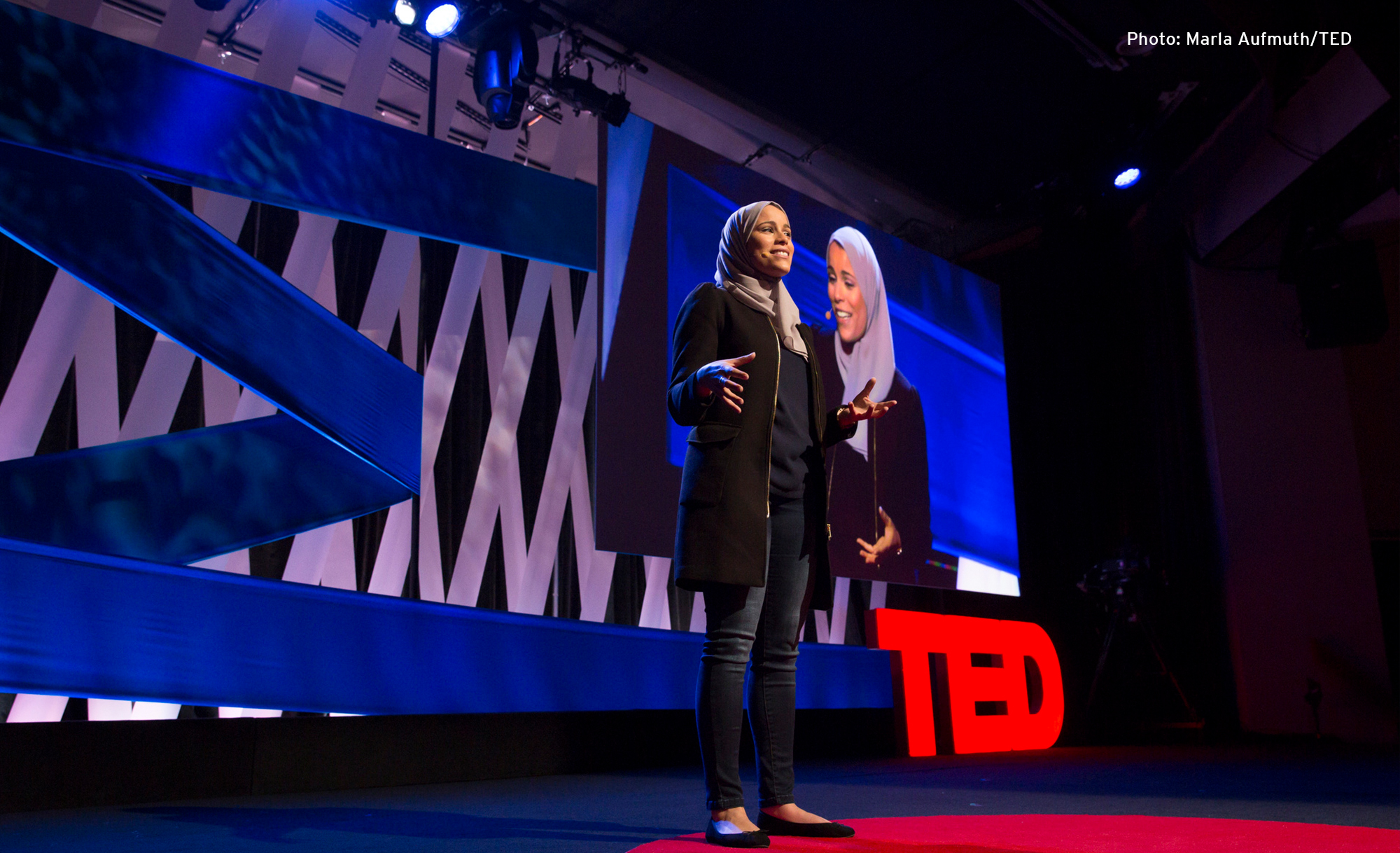
Katja: Today only 22 percent of all parliamentarians in the world are women, only around 17 percent of all ministers are women, and on company boards and at peace negotiation tables, we are also far from an even split – that is not exactly impressive. Evidence shows that companies, countries, and peace agreements fare better when there are more women involved. So why isn’t it happening?
Alaa: Exactly, I completely agree with you. What strikes me most about this is that it is not a regional problem, not a challenge limited or defined by religion, culture or national history. It is a global challenge.
A sober analysis of the data points unambiguously in one direction, yet why is that not reflected in global and national policies? In fact, Karen Mason, who was the Director of Gender and Development at the World Bank, showed that gender equality in capacity and access to resources will accelerate economic growth and propel women out of poverty. Moreover, The McKinsey Global Institute reported that advancing women’s equality could contribute $28 trillion at full potential. To give you a better idea of the significance of that incomprehensibly huge sum of money, that is greater than the economic growth of China and India combined.
Unfortunately, despite the overwhelmingly favorable prospects of advancing women’s leadership in the public and private sector, patriarchy continues to be firmly rooted in our societal consciousness. Historically, men have been the main arbiters on issues that directly affect women and even ones that exclusively affect women. Women’s participation is an affront to the distribution of resources that men have typically allocated for themselves in a vertical hierarchy, and therein lies the reason for the strong resistance towards more women’s participation in business and government despite the unequivocal data supporting it. To overcome the gross underrepresentation of women in decision-making bodies, a coordinated effort at all levels of society is required.
“Religious institutions are dominated by men and driven by male leadership, and they create policies in their likeness, and until we can change the system entirely, then we can’t realistically expect to have full economic and political participation of women. Our foundation is broken. My mom actually says, you can’t build a straight house on a crooked foundation.”
Katja: It often requires a dedicated effort to get more women into politics, leadership, on boards etc. Quotas are one way to achieve increased gender balance, but sometimes it also requires culture change. What is in your opinion is needed to ensure that women can get to the table – and be listened to and taken seriously once they have a seat?
Alaa: To start, it’s important to recognize headlong that gender parity cannot be reached overnight. To approximate gender equality, we need to coordinate our efforts with other advocates of women’s leadership, cooperate with political and social leaders, and overcome culturally shaped mindsets that span generations.
To date, men dominate decision-making tables, formulating policies that directly impact society and by default, women, whereas women comprise less than 20% of seats in national parliaments. That obviously represents a troubling asymmetry.
While mandating quotas on leadership boards and advisory councils is important, quotas are just one part of the fix and do not at all qualify as a solution on their own. I cannot overstate the importance of these quotes serving more than just a symbolic function on a checklist. Representation in numbers is huge, but if there is no will to allow women meaningfully adjudicate when they get on the table, then the quota is essentially meaningless.
Far harder than fulfilling quotas, and arguably more important, is modifying inveterately held cultural notions about the subordination of women. A broad change in mindset will enable women’s access to decision-making tables. It’s difficult to change notions that often cut across the strongest of a person’s convictions, but my work is testament that working towards gender parity along the dimension of perspectival shifts isn’t a fool’s errand and that seeking out unlikely allies, such as mobilizing community leaders that already have the social capital inside those spaces can hold enormous power as a strategy for greater inclusion.
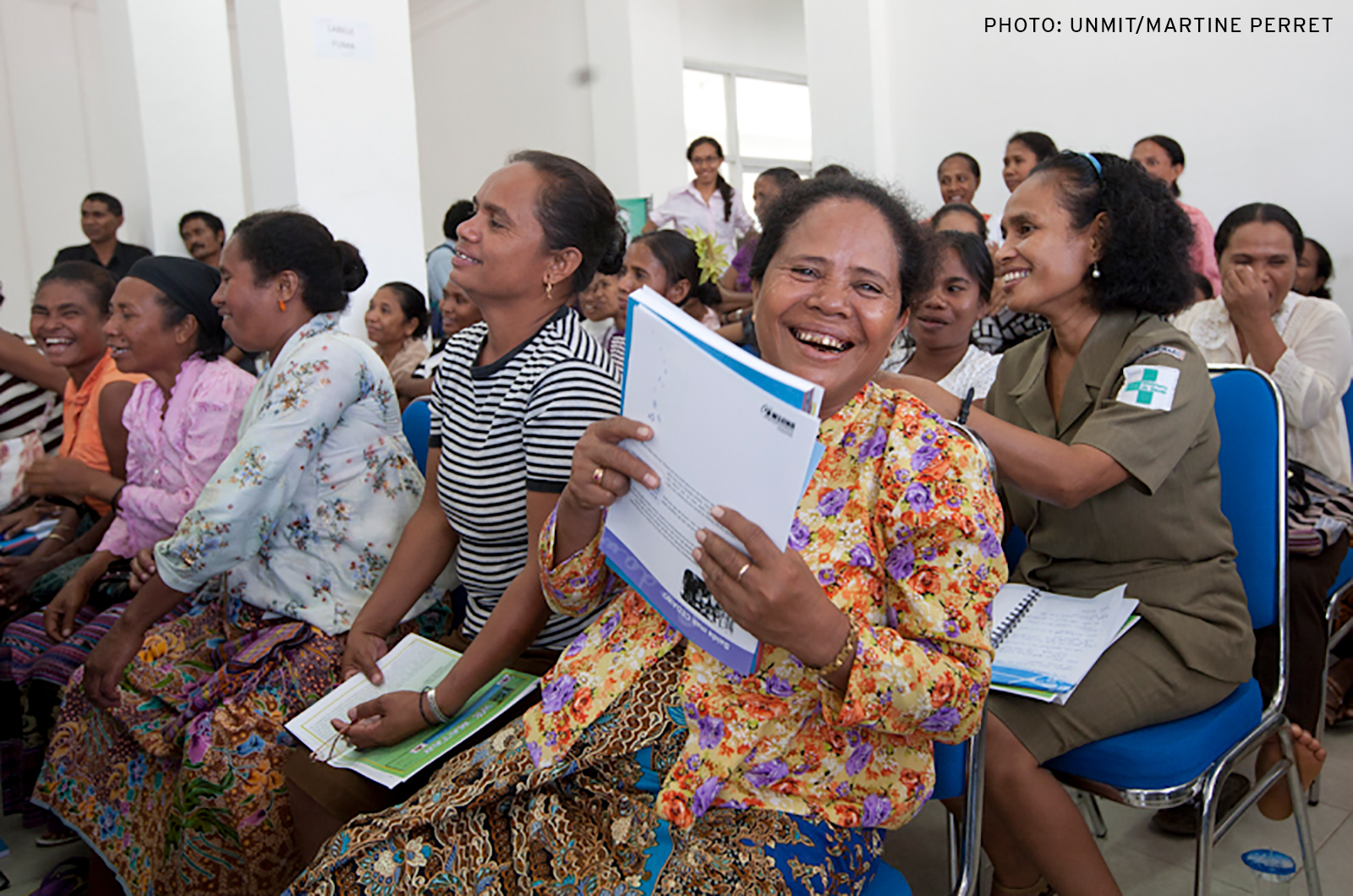
Simply demanding that people change their beliefs without alternatives or without recognizing that challenging those beliefs is challenging the very fabric of their upbringing, social understanding and often, their right to hold power in particular spaces. are what th is a challenging approach, but it’s important, too, to take a few steps back and recognize that there are structural and institutional realities that bar women’s participation in positions of leadership. Let us remember, for example, that many girls globally are not even afforded the right to an education, often a prerequisite to entering positions of great esteem and decision-making capacity. So while paucity of women’s leadership is a huge concern, and one of course that is worthy of advocacy and serious attention, in cases where girls’ educational prospects are obstructed, either by patriarchal impediments or safety concerns, it would be wiser to first ensure their educational access before advocating for their inclusion in roles of power, since the former is often a precursor to the latter. The importance of this cannot be understated and crosses issue areas, as Paul Hawken has studied in “Drawdown” his action guide to end climate change, the education of girls is an essential component to climate change action. Educated girls raise the GDP of their countries, have less children, vaccinate their children and create a cycle of education within their communities.
Additionally, as a member of the High Level Advisory Group for the 1325 Global Study: Women, Peace and Security, we assessed women’s participation in peacemaking, protecting and promoting women’s rights, access to justice, peace building, peacekeeping, countering violent extremism, and financing, among other areas. We have shown that women’s participation at the peace table leads to higher chances of successful peace mediation and negotiations, implemented agreements and sustainable peace. The inclusion of women revealed reduced armed violence and greater conflict management. Women’s participation also enhances the efficacy of humanitarian assistance and protection efforts.
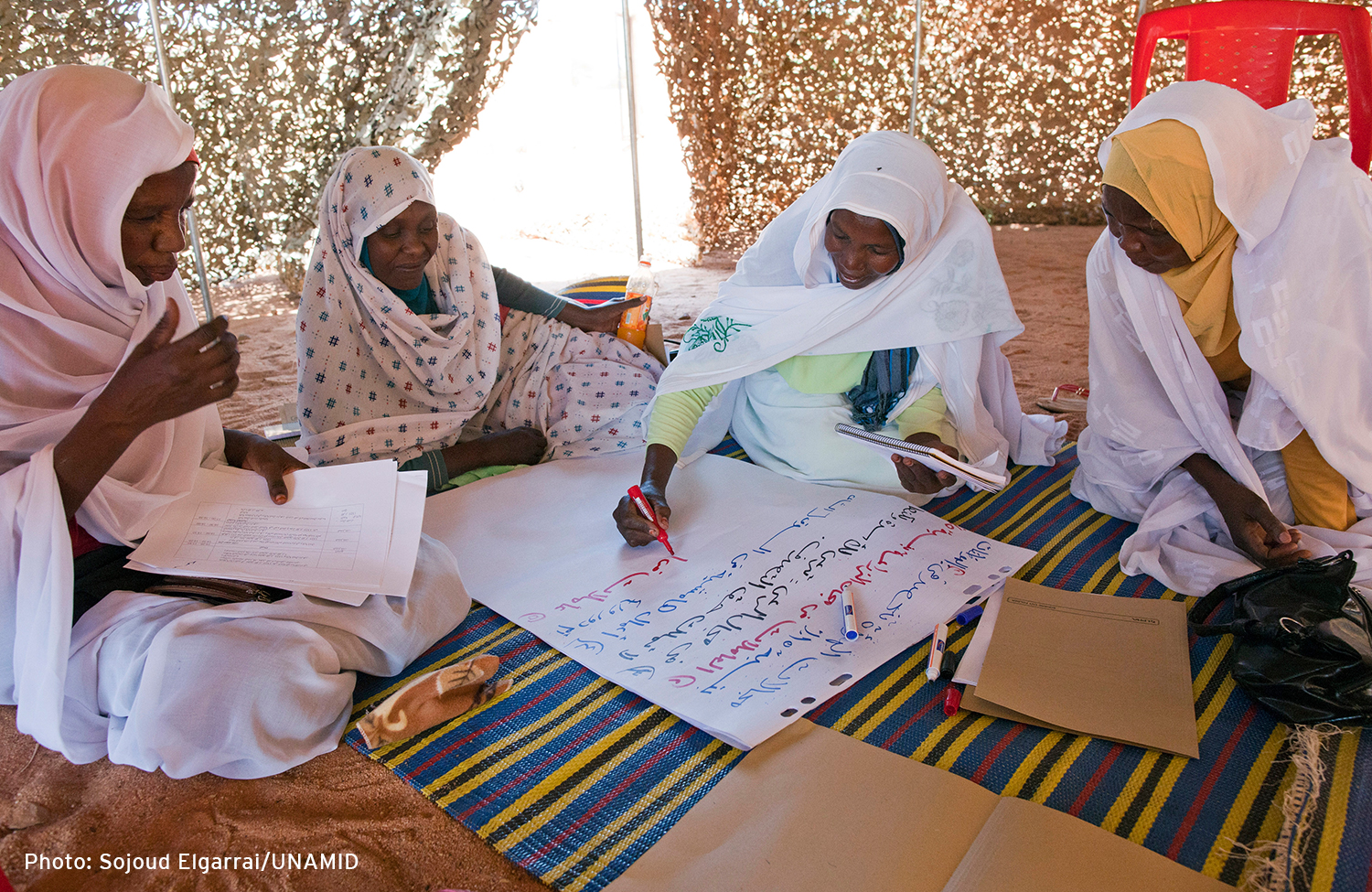
Katja: Strengthening women’s political participation and decision-making power is one of the 12 investments in the fast growing Deliver for Good campaign because, as the data shows, the ripple effects are undeniable. Women in positions of authority tend to resolve crises without resorting to violence, advocate for social issues that benefit all, and allocate bigger budgets to issues like health and education. What positive effects have you seen in your work once women possess decision-making power?
Alaa: In the 1325 Global Study: Women, Peace and Security, which I helped lead, we found that that women’s participation at the peace table leads to higher chances of successful negotiations, implemented agreements and sustainable peace. Inclusion of women corresponds to reduced armed violence and conflict management. This is something I have seen first-hand; during (and throughout) the Libyan revolution and other uprisings in the region, women have spearheaded education, media, and political initiatives through multisector reform.
The Global study illustrated that women are invaluable resources whose participation enhances humanitarian assistance, peacekeeping and economic recovery. Often, they are viewed as less threatening than men – politically, socially and economically, which brings great advantage in community relations. Women are also the best detectors of radicalization in their families and communities and can act rapidly to counter it. Yet, only 9% of women are at the peace-making table.
“To put it plainly, women, on the whole, legislate more compassionately. This has been corroborated by numerous studies and reports, and empirically it is something that I can attest to.”
The American Journal of Political Science reported that women, compared to men, sponsor and co-sponsor more bills and are able to generate 9% more wealth in their districts. Women sponsor bills that are beneficial for communities at large, addressing issues like education, health, sexual harassment, and poverty which are actually the bedrock for long-term security.
Another study published in Political Science Research and Methods affirmed that men and women legislate differently. Where women are more likely to sponsor bills in education, healthcare, and civil rights, men tend to focus on policy areas such as agriculture, military and macroeconomics. Women also show reduced likelihood to resort to war and the death penalty, and their involvement shows correlation with reduced military spending and use of force.
To put it plainly, women, on the whole, legislate more compassionately. This has been corroborated by numerous studies and reports, and empirically it is something that I can attest to. There is an under-appreciation for compassionate governance, but in today’s increasingly militarized world, it is precisely what we need more of.
Katja: The world is in a very special place today with lots of challenges, but also lots of progress. We need to mobilize all good forces to champion gender equality and women’s status, participation, and power to make positive change happen for all. From your perspective, as a global advocate and influencer for women and SDGs what are the next steps? Who do we need to get involved? What can people do right now?
Alaa: One of the first steps we need to take as a society is to unite and commit to gender equality; it is one thing to recognize the persistence and roots of the problem, but it is another to realize that to truly address it we will have to delve into questions of power, accountability and supremacy. It is unrealistic to imagine we can sustainably address women’s rights without exploring masculinities, and how they have shaped and continue to shape our world. We need to galvanize the participation of governments, employers, and others with social capital with the clear understanding that the empowerment of women and girls is not only the right thing, but that it leads to greater social, economic and political success for societies as a whole. Our journey will be long, but if we remain ambitious, deliberate and strategic, we will make strides in the right direction.
Here are action steps that readers can do right now:
- Sign the commitment to Deliver for Good and encourage your friends and family to follow suit.
- Mobilize people in your communities to push for change. The SDGs cannot be implemented without the full participation of every member of the community. Never forget that power lies in the hands of the people!
- You don’t have to go far to be effective: in your own workplace, home, and community ensure that you are being inclusive and that women’s voices are heard and their experiences and leadership are key in the architecture and implementation of projects.
- Reach out to organizations whose missions center gender equality, such as International Alert and the Malala Fund and coordinate your efforts so that they have a greater net effect.
- We all have a passion. If yours is climate change action or sustainable cities then look at how greater education of girls and the empowerment of women can lead to greater strides in an area you feel passionate about.
“Our journey will be long, but if we remain ambitious, deliberate and strategic, we will make strides in the right direction.”
